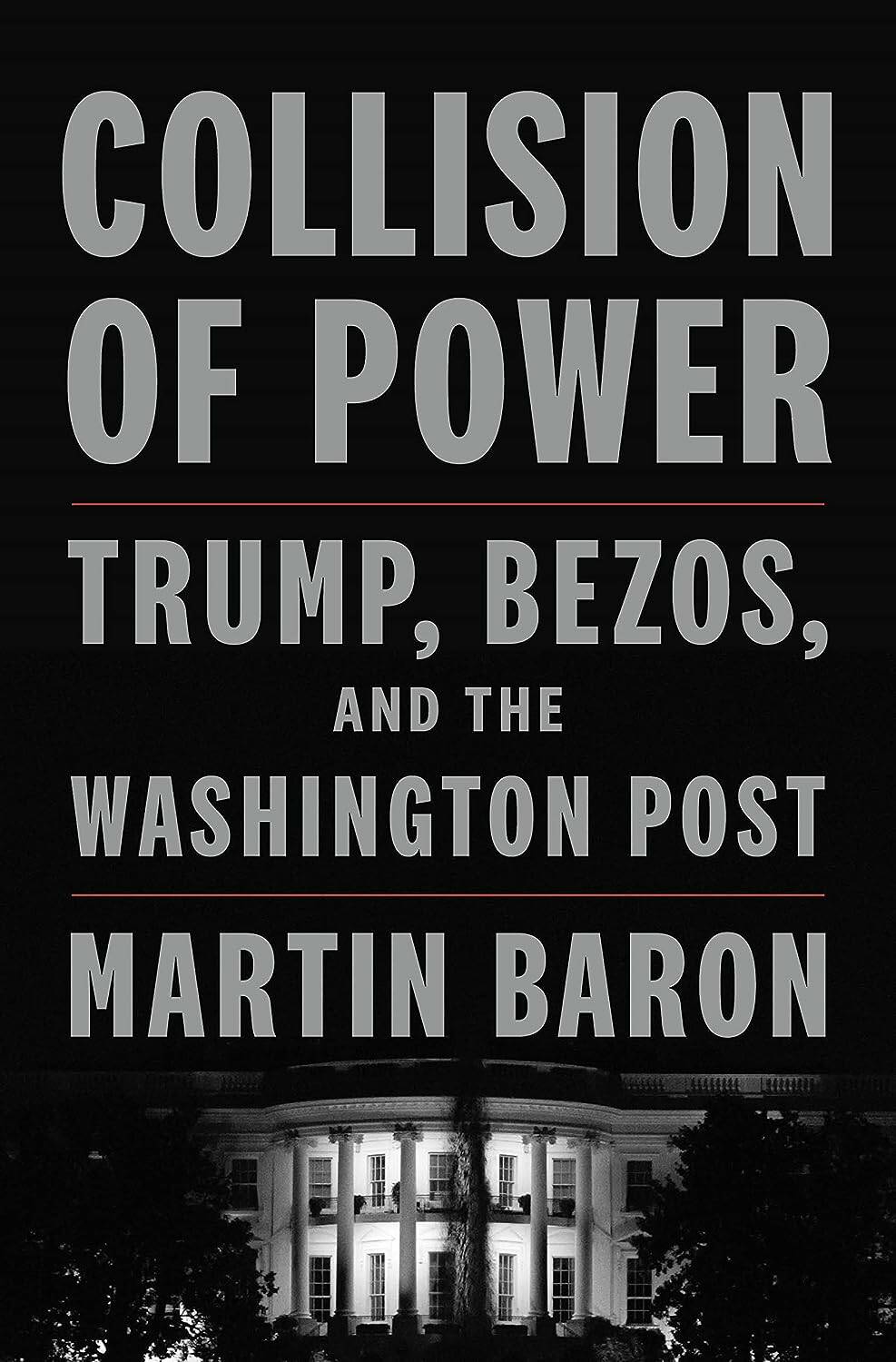Ex-WaPo editor’s memoir mulls Bezos, Trump and more
Advertisement
Read this article for free:
or
Already have an account? Log in here »
To continue reading, please subscribe:
Monthly Digital Subscription
$0 for the first 4 weeks*
- Enjoy unlimited reading on winnipegfreepress.com
- Read the E-Edition, our digital replica newspaper
- Access News Break, our award-winning app
- Play interactive puzzles
*No charge for 4 weeks then price increases to the regular rate of $19.00 plus GST every four weeks. Offer available to new and qualified returning subscribers only. Cancel any time.
Monthly Digital Subscription
$4.75/week*
- Enjoy unlimited reading on winnipegfreepress.com
- Read the E-Edition, our digital replica newspaper
- Access News Break, our award-winning app
- Play interactive puzzles
*Billed as $19 plus GST every four weeks. Cancel any time.
To continue reading, please subscribe:
Add Free Press access to your Brandon Sun subscription for only an additional
$1 for the first 4 weeks*
*Your next subscription payment will increase by $1.00 and you will be charged $16.99 plus GST for four weeks. After four weeks, your payment will increase to $23.99 plus GST every four weeks.
Read unlimited articles for free today:
or
Already have an account? Log in here »
Hey there, time traveller!
This article was published 25/11/2023 (725 days ago), so information in it may no longer be current.
This is the story of how you run a newspaper owned by a wunderkind billionaire while an imperious goof in the White House sets off fireworks, and sometimes fires salvos right at you.
Martin Baron ran the Miami Herald and Boston Globe newsrooms before being appointed editor of the Washington Post in 2013. His role in launching the Globe’s investigation of the Catholic Church’s cover-up of sexual abuse by clergy was portrayed in the Academy Award-winning movie Spotlight.
But this fascinating memoir is exclusively about his stint at the Washington Post.

Collision of Power
Its focus is twofold: the newspaper’s being placed under new management following its purchase by Amazon’s multibillionaire owner Jeff Bezos later in the same year Baron became editor, and its coverage of the candidacy and presidency of Donald J. Trump. Baron retired from the Post in 2021.
One of Trump’s perennial, yet on balance more benign, lies is that Amazon bought the Washington Post as a tax deduction. Amazon doesn’t own the newspaper — it never has. Jeff Bezos bought the Post, personally.
Bezos himself fares well here.
Although Baron had little direct contact with Amazon’s executive chairman — his few interactions with the newspaper’s reportorial side were mostly channelled through publisher Fred Ryan — what little he saw, he liked.
He duly credits Bezos for his capital infusions that allowed the newspaper to ramp up and broaden its political coverage at a critical juncture in American history. But he also shines in two major stories involving foreign-power abuse, and in one case murder, of Post journalists.
The Post’s Tehran bureau chief, Jason Rezaian, was falsely held in an Iranian prison for 544 days. Bezos worked relentlessly for his release, and immediately upon the reporter being freed in January 2016, dispatched his private plane to fly him back to the United States.
Bezos was also omnipresent in coverage of the 2018 murder of Post columnist Jamal Khashoggi by Saudi secret service agents when he attended Saudi Arabia’s Istanbul, Turkey consulate to obtain documents required for his marriage licence.
Collision of Power is a spectacular piece of reporting about reporting — specifically the Washington Post’s coverage of Donald Trump’s candidacy and then presidency.
The book is great, in part, because apart from his own first-person accounts of coverage of a deceitful and vengeful president, Baron has gone back and interviewed various reporters, editors and publishers for their take on events he’d shared with them. So you get a full and sometimes multi-perspective account of what went down in the White House and in Post newsrooms.
In many ways it’s a sad book, reminding you constantly that a bully, liar and narcissist ascended to the highest office of the United States of America.
Baron forecast, correctly, that if Trump lost the 2020 presidential election “he would not willingly leave the White House and that he would do whatever he could to retain power.
“He could never tolerate the idea of losing. It became increasingly evident that he would simply deny that he had lost. Facts were nothing to him. Democracy and his oath to ‘preserve, protect and defend’ the Constitution were no dearer to him, either.”
What elevates the book above a superior blow-by-blow recounting of Baron’s tenure as editor is his illuminating thoughts about the role of journalism in a democracy.
He faced an often-rebellious newsroom that wanted to engage with Trump and sundry social causes on a deeply personal level. Many young reporters wanted the right to tweet favourably about, protest in support of, and donate to activist causes.
But he constantly reminded them that good old-fashioned objective reporting is a newspaper’s core strength. Anything less plays into the hands of the likes of Trump, and could lend credence to his “fake news” mantra.
At a Post staff town hall meeting he laid it out for reportorial staff.
“We don’t allow donations to activist, advocacy and political groups, and we don’t allow participation in marches and protests,” he said. “When we lose the perception and reality of independence, we give the public a reason to question our authority as well. They will see us as activists and partisans.”
This is a thoughtful memoir of contemporary American politics.
It’s heady stuff, but elegantly delivered.
Douglas J. Johnston is a Winnipeg lawyer and writer.


